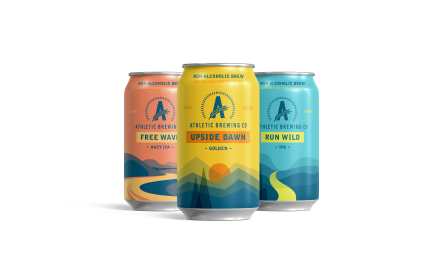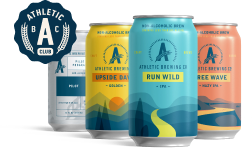Why every runner should be running trails

Do you want to become a better runner? Whatever type of runner you are; road, track or trail you should be including trail running in your routine. Whether you run trails regularly or have never hit the dirt, mixing in trail running with your training will not only make you a stronger runner but also a happier one. Here’s why…
Getting Stronger
Running on trails requires more strength than running on road. There’s much reduced reactive force (remember Newton’s Laws) than on the road as the softer ground absorbs the force, especially on muddy ground vs the pavement. Each step requires significantly more energy to lift, sometimes with mud still attached! This might put you off at first, but if you want to become a stronger runner then this will really help. Not only that, but since trail running is through a 3-dimensional environment, requiring you constantly to jump over obstacles, change direction, run up hills, dodge puddles and low hanging branches, it requires your whole body to work hard, not just your legs. You will use your arms to balance as well as drive forward and your core to connect everything together. All of this will mean when you do finally run on the road or the track, you will find the strength gained from the trails has paid off as you power up hilly streets and push your speed on the final bend into the finishing straight.

Better Form
Good running form improves running efficiency, allowing you to move at faster paces and with less perceived effort. Trails demand you to constantly adjust form with each step. Technical sections as well as steep ups and downs force you to shorten your stride and allow for the foot to fall neatly below your centre of mass. If not, you’re going to take a tumble. All of this helps create muscle memory for good form when you are back on the tarmac.
Faster Reaction Times
Branches, tree roots, puddles, styles, these are just some of the trail furniture that you will encounter during a trail run. As your body becomes more practiced at reacting to them, your reaction times will reduce, and your proprioceptive (understanding where you are in time and space) ability will improve. Running trails requires you to be running in the moment at all times just to keep upright, there’s no day dreaming here! As a result, you’ll be quicker off the mark, improve your alactic and lactate energy systems, great for those 5km personal bests.
Injury Prevention
Every foot fall is different on the trail. Unlike the road which has more impact on joints (back to Newton’s Laws) and also leads to repetitive strain-based injuries. The trails not only give more healthy loading on the body, they also can help strengthen ligaments during training. Watch out though, as getting injured during a trail run through a fall is easier to do than road running, for example tripping and twisting an ankle, so start off steady and work on your strength and conditioning.

Better for your mind
Trail running has the unique ability to reconnect us to our beautiful natural world and yet at the same time stimulate and connect our physical, mental, emotional and spiritual elements. It provides us with the space to destress, find peace and all the while become a stronger runner. Whilst your appreciating the mindfulness of the moment you may also recognise the mental toughness that’s required to plough through trails on cold, wet and wintry days. Again, perfect for giving you that extra mental edge for digging deeper when the dreaded wall hits.
Greenspace is the best headspace
Connecting with nature is something that scientists are just starting to understand much more about, particularly in regards to its benefit to mental health. Scientists have now definitively proven how important this is to us, but actually it’s still fairly new science, especially when we compare it to what we know about the importance of exercise. The first significant research was published in Science in 1984. It followed the recovery of post-surgery patients, exploring whether they recovered more quickly when placed next to a window with a view of a natural scene or not. The patients adjacent to the windows recovered quicker and required less painkillers.
Simply walking in nature for fifteen minutes (in comparison to walking in an urban environment) increases measurably our ability to concentrate, our mental and physical energy. It can even increase our intrinsic aspirations and goals, such as how we perceive personal growth, community etc and decrease extrinsic aspirations such as money, image and fame, and even boost our immune system. That’s amazing!! Combine this with the fresh air that trails offer and you have the perfect environment for running.

Unplugging
Let’s be honest, phones are amazing. They have changed the world we live in, how we do business and for many they are life savers, particularly during lockdown. However, they can also take away our lives if not managed. At 150 texts a day, and the average adult picking up their phone every 12 minutes, these are symptomatic of addictions. Phones can cause headaches, decreased attention, shortness of temper, sleep disorders and depression, and if you are already susceptible to these issues, can accentuate them. The good news is that trail running whilst looking at your phone is extremely dangerous! Therefore, most people are not tempted to do it and it could be the one time in your day when you don’t.
Convinced?
Ok so hopefully I’ve convinced you to get out onto the trails. You don’t need to be running trails all the time if that’s not your thing, but adding a trail run every week or every other week into your training plan is going to really help with your running journey. It will add in more variety and is a great substitute to a hill session or track session. Pro road runners now frequently add in trail running as a form of cross training to the road. Remember to start slowly, add in strength and conditioning to improve your joint strength, especially for ankles and then most importantly have fun! Get in touch with us at Run the Wild if you want to know more about trail running or want to join us on one of our guided runs.
Written by Simon James, Alpine Trail Running Guide, International Mountain Leader, UKA Coach and Founder of Run the Wild


